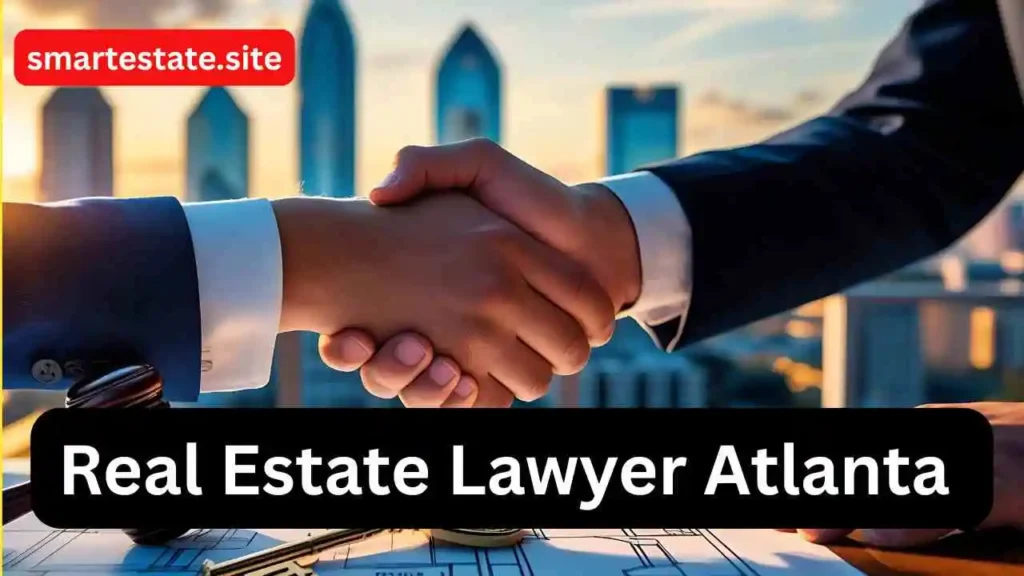Having someone who knows real estate law on your side is essential before you sign any contracts. But you need to pick one who knows the local market, can actually communicate with you, and pinpoint potential problems before they become expensive mistakes. In order to make sure you have the right match, start the search process by asking these seven vital questions when hiring a Real Estate Lawyer in Atlanta.
7 Important Questions for Your Real Estate Lawyer Atlanta
Benefits of Hiring a Real Estate Lawyer Atlanta
When you buy or sell real estate, you generally assume that it is a clear, straightforward, and simple process of signing some papers, saying goodbye to the buyer/seller, and getting/leaving with the keys. However, when you hire a Real Estate Attorney in Atlanta, the matter is rarely that cut and dry. Laws vary, paperwork multiples, and a single misstep can derail the entire transaction. A Real Estate Attorney in Atlanta in even more than a mere formality as he ensures that you do not get embroiled in legal tangles.
The Power of Real Estate Postcards in 2025
Best Real Estate Tax Lawyer Near Me
Real Estate transactions are complex affairs
That adorable bungalow in Midtown? It may have zoning issues you failed to consider. The high-rise condo in the city? It could be mired in an HOA hellscape. The point is that real estate law is filled with subtleties that escape the casual eye.
Potential problems with local regulations
If you are in a large city, local laws may make it much more difficult for you to operate.
Georgia has its regulations, and then Atlanta has its flavors on top of those regulations. It’s not that the contract only means this and nothing else, but in this context, it does. Local knowledge means you avoid infringements, setbacks, or worst case, losing the deal.

Lawyers keep you from making costly mistakes
A blown deadline, misunderstood provision, or a seller who “forgot” to disclose a lien… any of these boo-boos can result in a huge financial loss. The presence of a lawyer is the next best thing to an insurance policy. You never hope to need it, but if anything goes awry, you’re sure going to be thankful it’s there.
Choosing the Right Atlanta , GA Lawyer
Credentials matter, but not everything
Having a fancy law degree doesn’t mean you’re necessarily the best qualified. What you’re really asking for is somebody who’s done transactions like yours. Residential? Commercial? New constructions? Foreclosures?
Local Atlanta Real Estate Lawyer With Experience
If the decision is to purchase or sell a home, or any type of real property.
Because Real Estate is so localized, dealing with Atlanta Real Estate is unlike other markets. Even if he or she has experience elsewhere in Georgia, that person’s familiarity with Fulton County might be limited. Ask them how long they’ve been specifically working in ATL to make sure your agent is familiar with the A-town.
The Art of Good Communication II: The Skill of Responding Promptly and Clearly
Communication is critically important for a lawyer to be able to get a message across in a timely and understandable manner. But if there are delays in response or the communication is not clear, it may be a sign that there is a problem. Seek out someone who is direct and accessible, and who will speak to you plainly without resorting to legalese.
The 7 Must-Ask Questions of Your Atlanta Real Estate Lawyer
Can you share any thoughts or observations on dealing with Real Estate transactions in Atlanta?
It is important to know the pulse of the Atlanta real estate market to ensure that you can negotiate well. Find a lawyer who knows how competitive Atlanta can be, the swift pace of everything and the tough conditions that go with it.
For a case like mine, have you all successfully handled it?
When buying, selling, or working with foreclosures, experience counts. Make sure your attorney has experience in your type of case, so that they can handle your case with ease.
How do you charge and what does that what charge include?
The antigens determine the blood type and maybe even something else, such as the feints. Flat fee, hourly rate, or contingency, Getting an idea of what the cost will be is critical for planning and eliminates surprises later.

Will you be working on my matter personally?
When working with a senior partner, realize that junior staff may be assigned to tasks.
There are often a lot of seniors making juniors do work. This can work to your advantage, but it’s hugely important to be prepared for this dynamic.
Think about who will be taking your calls and managing your issues.
Learn who will be facilitating your contract and reviewing important information, like your title report. If these functions aren’t performed by the contact you’re meeting with, get a sense of who does perform them.
Are there any legal risks in my transaction that you can identify?
A good lawyer is good at flagging the issues before they get too far out of hand. Spotting legal risks early is the best way to prevent trouble later.
Try to be proactive as opposed to reactive….
Find an attorney who is proactive and who deals with problems before hearing about them from you. You need someone who is a step ahead, who deals with potential problems before they become septic last-minute crises!
What will be used to communicate throughout the legal process?
It’s important to know how your attorney will be communicating with you. Explain how often you wish to communicate, your desired communication channels (text, email, or phone) , and when you expect a response.
Count on clear communication and accessibility guidelines
Ask how often updates will be given and in what form. Small things, such as how quickly they email you back or how often you can talk to them over the phone, will have a tremendous effect on your experience with the person.
How do you handle crises?
Your lawyer’s reaction can shape how prosecuting attorneys behave.” You’ll need a lawyer who can stay calm, come up with strategic solutions, and explain what’s happening to you along the way.
Measure their response to failure.
A very good attorney can keep calm in stressful situations, can adjust to ever-changing circumstances, and keeps you informed and involved when the situation is very difficult for you.
Benefits of Asking the Right Questions Early on
There is a reason behind these questions, other than just curiosity. They’re also what’s known as a filter, helping you find not just an expert, but the right fit. When you look for a lawyer, you are not just hiring a professional; you’re seeking a business partner for one of the most important investments you will make.

When Is a Good Time to Have the Best Real Estate Attorney in Atlanta?
As soon as possible. Preferably , before you take any offers. A good attorney can help structure terms, identify title problems, and shepherd you through the process. Leaving it to the last minute would be a high-stakes bet.
How to Protect Real Estate Litigation Attorney
If You Already Have a Real Estate Agent, What’s Next?
I understand this is a frequent question, but their duties vary. Agents handle negotiations and paperwork, but not legal cover. Your agent may very well mean well, but they have not been trained to spot the legal pitfalls. That is where your lawyer becomes rather critical
Guide LHB Real Estate to Smart Property Investments.
Other considerations for obtaining proper legal help
There is only one real estate attorney who is the best fit for you; there is no such thing as the “perfect” one. The more honest, probing questions you ask, the better your chances are of settling on someone who has your best interests at heart. When pursuing the Atlanta real estate market, delays can be costly due to the dynamic sellers’ market.
Summation
In Atlanta, whether you’re buying or selling a property, the experience can be quite exhilarating yet confusing at the same time, especially when it comes to legal aspects that people don’t give much thought to. The right questions allow you to differentiate whether a Real Estate Attorney in Atlanta understands not only the legal components, but also understands you personally. The difference is crucial. And that difference is everything.
Common Questions For A Real Estate Attorney In Atlanta
I have a real estate agent in Atlanta, so do I need a real estate lawyer?
Agents handle sales and paperwork, but they don’t offer legal advice or cover you for potential liabilities the way attorneys do.
Are real estate attorneys expensive in Atlanta?
Fees vary, but many offer flat rates for routine transactions, which is usually money well spent, given the potential expenses of a legal mistake.
At what point should I consult a lawyer in the real estate process?
Preferably, before the locking of any contracts. Including them at the outset will guarantee all-around protection.
May I retain a lawyer from another state?
In theory, you could do it, but I wouldn’t recommend it. Out-of-towners don’t know state and city laws as well as locals do, said Atlanta defense attorneys.
What if the seller has an attorney?
Their attorney is there to assist them, not to represent you. But it remains important to have your attorney protecting your interests.
